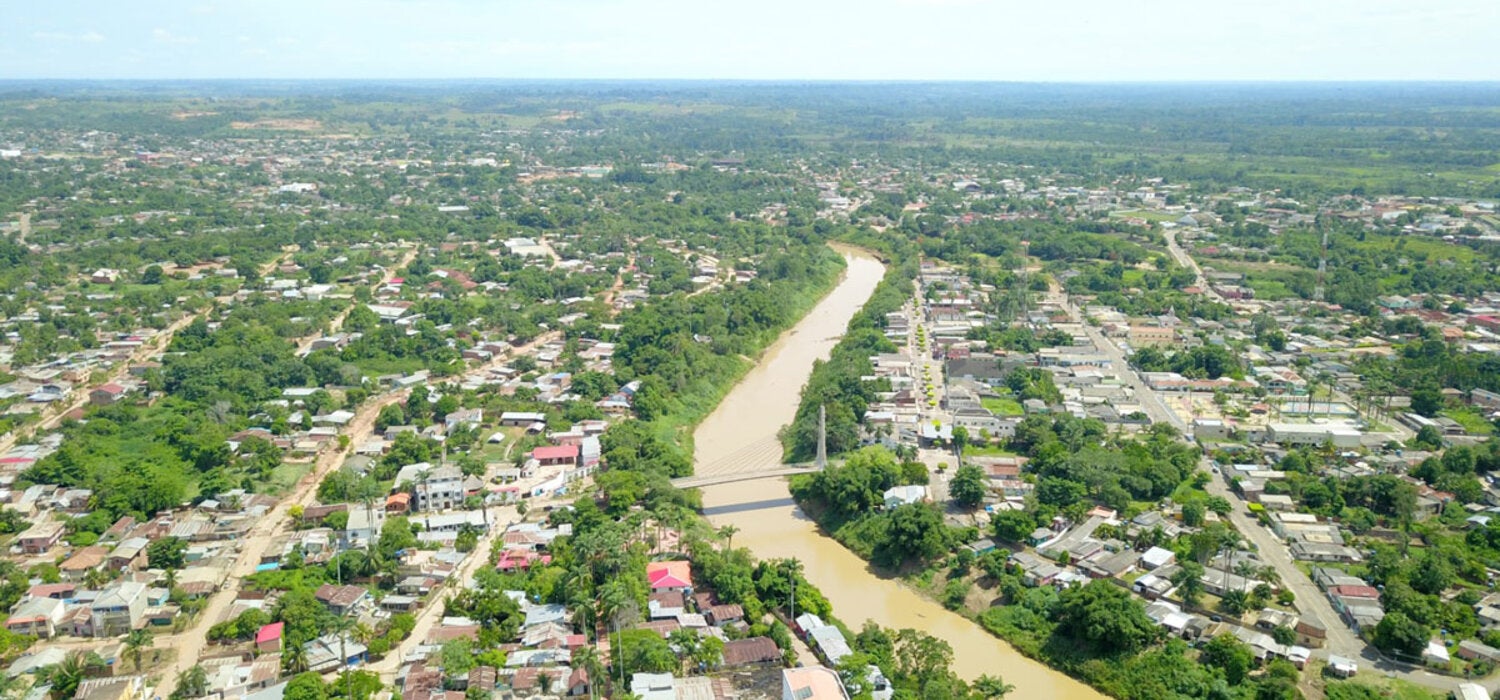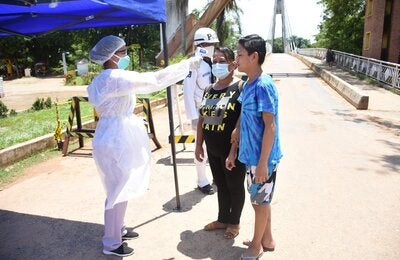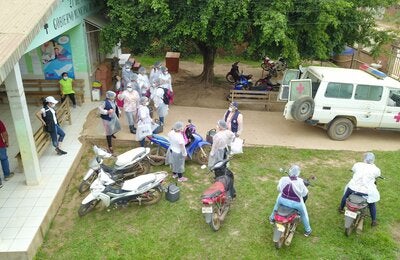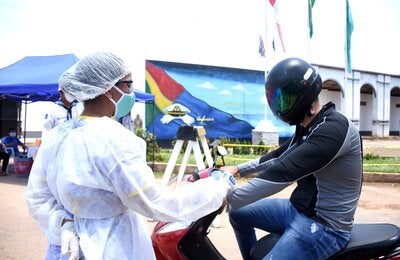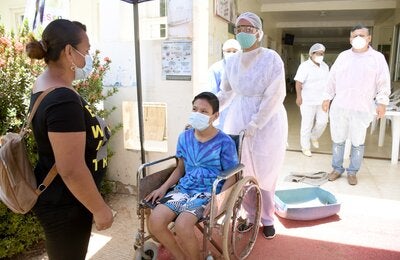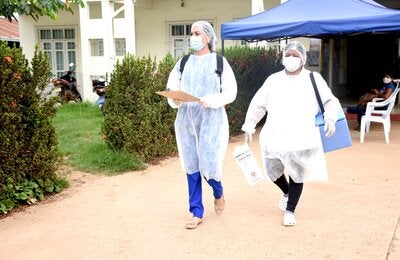Enero 2021
Pando is located in northwestern Bolivia on the border with Brazil and Peru. It has a population of 154,355. Its capital, Cobija, adjoins the Brazilian cities of Epitaciolandia and Brasileia.
Populations along the border are naturally divided by the Acre River, and are connected by two bridges: De la Amistad and Internacional.
Being an easily accessible border area with easy access and a smooth flow of trade, it is vulnerable to the spread of vaccine-preventable diseases originating in neighboring countries.
Cobija is ready in the event of a health alert. In such an event, the Departmental Health Services (SEDES) would apply the International Health Regulations (in effect since 2005) which set standards for the notification of risks and diseases in border cities, thereby strengthening health inspections at the various points of entry
SEDES conducts simulations and ongoing controls at the border. It knows that, in the case of an outbreak, it must inform the health facilities closest to border crossings about control, surveillance, and measures to close the focus of disease. Personnel are deployed at each point of entry along with members of the Armed Forces to help control pedestrian and vehicle crossings by anyone traveling from one country to another.
In the event of a suspected case of measles detected by health staff at one of the two border points, the health center would immediately proceed to execute a contingency plan, first by attending to the patient, and then by immediately informing the Epidemiology Unit of the Departmental Health Services (SEDES) and the entire chain of command.
The authorities are prepared to activate any of the alerts corresponding to the established contingency plan. They proceed rapidly, conducting the case study and defining the areas to set up “focus blockades,” conduct sweeps, and close down the blocks around where the person with the suspected case lives.
The Expanded Program on Immunization (EPI) carries out a rapid action plan every six month to improve coverage levels and rigorously monitor the diseases that beset people in the department says Dr. Ryder Burgos Tavera, Director of the Mapajo Health Center.
The Bolivian Armed Forces stationed at border points play a key role in supporting the control and early detection of suspected cases of measles or other diseases.
Rear-Admiral Edgar Alvarado Villarroel, commander of the military garrison in Pando, reports on the role of the armed forces in the event of a COVID-19 alert. As a result of the pandemic, they coordinated with different institutions such as the Ministry of Health through the Departmental Health Services (SEDES) to provide support at the country’s points of entry. They are also supporting epidemiological surveillance to keep measles cases imported from Brazil from entering Bolivia.
The Pan American Health Organization and the World Organization have successfully strengthened the entire Expanded Program on Immunization (EPI) team by offering ongoing training in epidemiological surveillance, compliance with regulations, management of implementation techniques, cold chain management, and provision of cold chain and computer equipment to improve the Electronic Immunization Registry.

